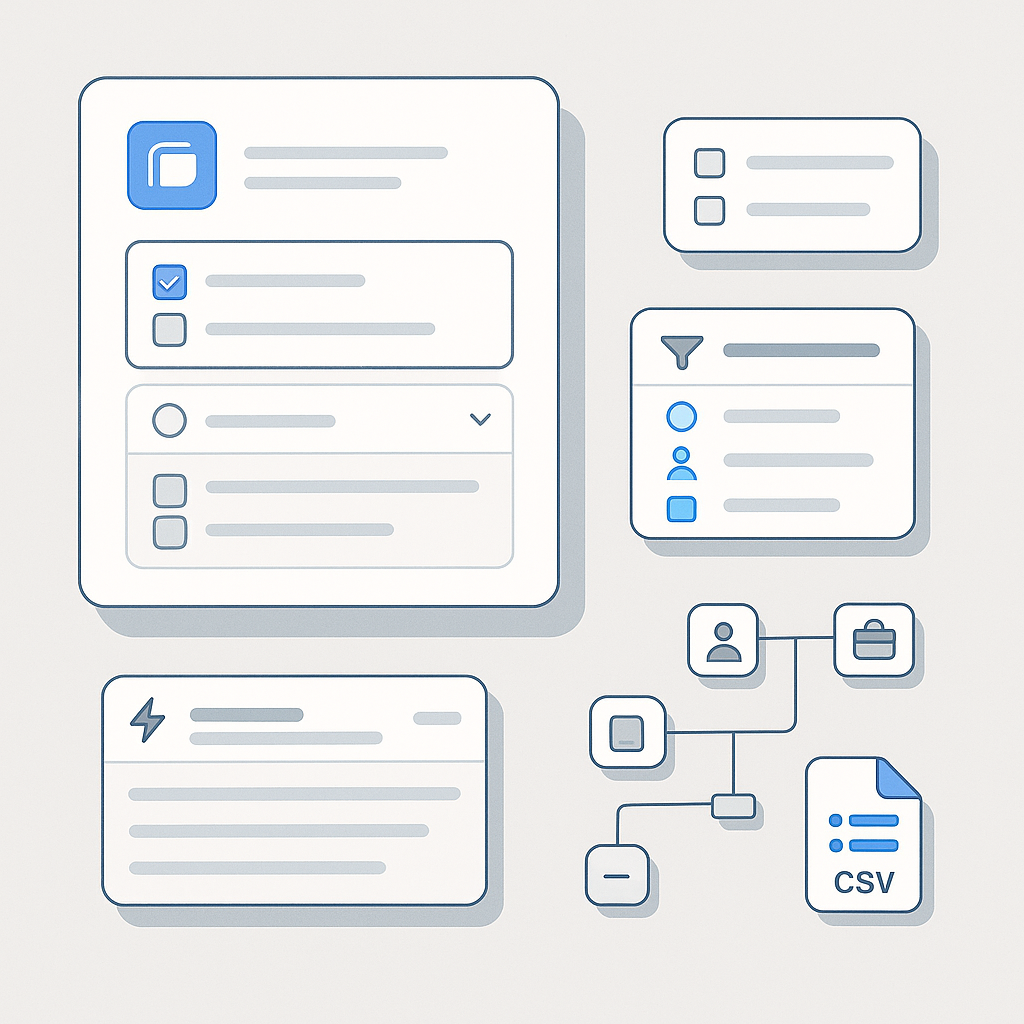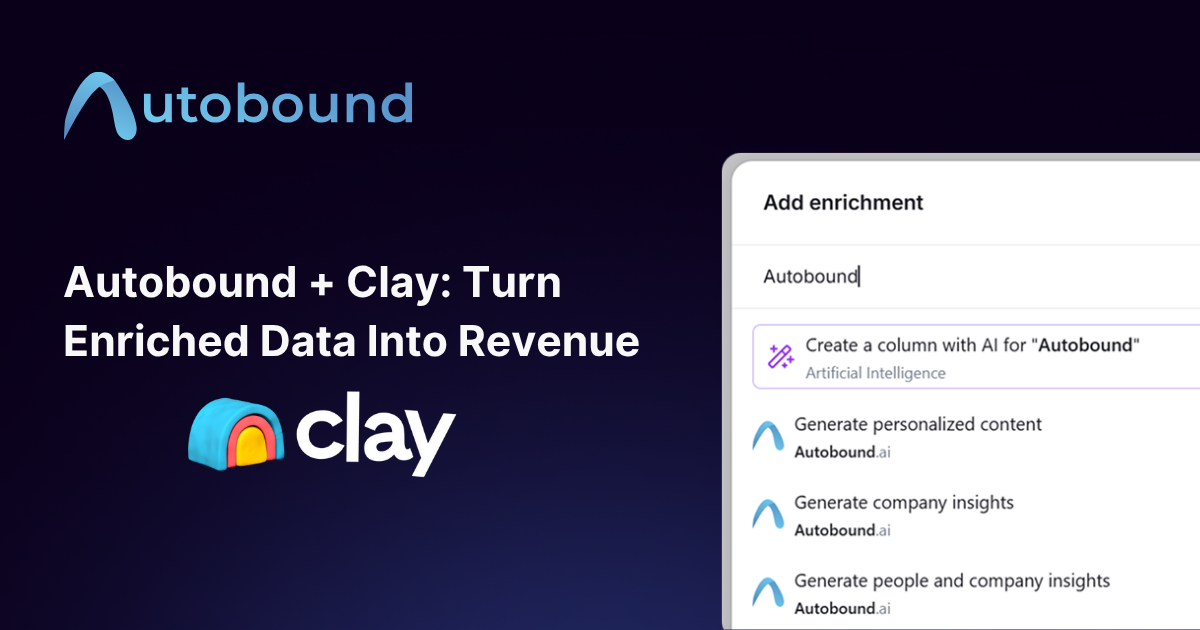I. Introduction: Turning a Sensitive Situation into a Strategic Opportunity
Imagine this: you're an SDR, coffee in hand, laser-focused on pitching your company's state-of-the-art cybersecurity software. You're scrolling through your LinkedIn feed, catching up on industry news, when BAM—you see it. Company X, a company that's practically a carbon copy of your ideal customer profile, just made headlines. And not the good kind. They've suffered a major data breach.
Your first reaction might be a grimace—ouch, that's rough. But then, a thought pops into your head: is this… an opportunity? It's a question that keeps many a B2B sales and marketing professional up at night: is it ethical—or even effective—to reach out to a company that's just been through the wringer of a data breach?
The answer, like a lot of things in the sales world, isn't a simple yes or no. It's a bit like navigating a minefield—you need the right map, the right tools, and a whole lot of sensitivity. Because here's the thing: data breaches are, unfortunately, becoming as common as those "We use cookies" pop-ups we all blindly click through. They're a stark reminder that in our hyper-connected world, no company is invincible. And when those digital walls come crashing down, it often triggers a seismic shift in priorities. Suddenly, cybersecurity goes from a line item on a budget to the executive team's number one concern.
That's where you come in.
This guide is your roadmap to navigating the ethical and strategic considerations of targeting companies with recent data breaches. We'll explore how to turn a potentially awkward situation into an opportunity to provide genuine value, build trust, and ultimately, position your company as the guide they need to navigate the treacherous terrain of data security.
II. The Landscape: Understanding Data Breach Trends and Their Impact
Before we dive into the "how," let's take a quick look at the "why." Spoiler alert: the data breach landscape isn't pretty. In fact, it's downright alarming.
In 2023 alone, millions of individuals had their personal information compromised due to data breaches. That's a significant percentage of consumers who have been impacted by data security issues. And the financial fallout? Hold onto your hats, because industry reports indicate that data breaches cost businesses millions of dollars on average.
Cybercrime represents a significant and growing threat to the global economy. And while no industry is completely immune to the threat, some are definitely more enticing targets than others. For example, certain industries that handle incredibly sensitive data—think healthcare, finance, technology—are prime targets for cybercriminals.
But here's the thing about data breaches: the damage goes way beyond just dollars and cents. Sure, the financial hit can be devastating, but the long-term consequences can be even more crippling. We're talking about a shattered reputation, a crisis of customer trust that can take years to rebuild, and the ever-looming threat of regulatory fines and lawsuits that can keep CEOs up at night. And let's not forget the operational chaos that ensues—the downtime, the recovery efforts, the scramble to figure out what went wrong and how to prevent it from happening again. It's enough to make any company want to crawl under a rock and hide.
III. The Ethical Considerations: Tread Carefully, Add Value
Now, before you grab your phone and start dialing every company that pops up on your data breach newsfeed, let's talk about the elephant in the room: ethics. Because let's be real, no one wants to be that salesperson—the one who swoops in with a sales pitch while the metaphorical building is still on fire. Imagine, for a second, that you're on the receiving end. Your company's data has been compromised, you're scrambling to contain the damage, and your inbox is flooded with generic, tone-deaf sales emails from companies that clearly see you as nothing more than a dollar sign. Not exactly the best look, right?
That's why approaching companies that have recently experienced data breaches requires a delicate touch, a genuine sense of empathy, and a deep understanding of the challenges they're facing. It's about putting yourself in their shoes and asking yourself: "If I were in their position, what would I need right now? What kind of support would be most valuable?"
The answer, more often than not, is not a hard sell. It's about offering genuine help, guidance, and solutions that address their immediate needs and help them navigate the aftermath of the breach. It's about positioning yourself as a trusted advisor, a partner who understands their pain points and can offer a lifeline in a sea of uncertainty.
IV. Targeting Strategies: The Right Message at the Right Time
Now that we've covered the ethical considerations, let's dive into the practical strategies that can help you engage with companies that have recently experienced data breaches in a way that's both effective and respectful.
A. Sales Outreach: Personalized and Consultative
- Timing is Everything: We get it, you're eager to reach out and offer your solutions. But hold your horses! Timing is crucial when it comes to data breach outreach. Bombarding a company with sales pitches while they're still dealing with the immediate fallout of a breach is a surefire way to get your email sent straight to the trash folder. Instead, give them some breathing room. A good rule of thumb is to wait at least one to two weeks after the breach has been publicly announced. This allows them time to stabilize, assess the damage, and start thinking about next steps.
- Research is Your Secret Weapon: Sales representatives often spend time gathering data on potential customers. When it comes to data breach outreach, research is more crucial than ever. Don't rely on generic templates or assumptions. Take the time to thoroughly research the specific breach and the company's situation. What type of data was compromised? What systems were affected? Who are the key decision-makers involved in cybersecurity? The more you know, the more personalized and relevant your outreach will be.
- Craft Value-Driven Messaging: Your subject lines and opening lines are your first impression—make them count! Ditch the salesy jargon and focus on empathy, understanding, and a genuine desire to help. Instead of leading with a product pitch, highlight your expertise in data security and your ability to provide solutions that address their specific needs.
- Example Subject Line: Helping [Company Name] Enhance Security Posture After Recent Event
- Example Opening Line: "I understand that [Company Name] recently experienced a data security incident. My team specializes in helping companies like yours prevent similar events in the future…"
- Embrace the Consultative Approach: Remember, you're not just selling a product or service—you're offering a lifeline. Adopt a consultative approach that focuses on understanding their challenges, addressing their concerns, and providing tailored solutions. Ask open-ended questions, listen actively, and position yourself as a trusted advisor who's there to help them navigate this challenging time.
- Example Questions: "What are your top security priorities right now?", "What steps are you taking to prevent future incidents?", "What are your biggest challenges in the aftermath of the breach?"
B. Marketing Strategies: Content, Education, and Thought Leadership
- Content is King (and Queen): In the wake of a data breach, companies are hungry for information, guidance, and reassurance. This is where your content marketing efforts can really shine. Position your company as a go-to resource by creating valuable content that addresses data breach prevention, response, and recovery. Think blog posts, white papers, webinars, checklists, and guides that offer practical advice, actionable insights, and a healthy dose of empathy.
- Example Content: A checklist titled "10 Essential Steps to Take After a Data Breach" or a webinar on "Building a Resilient Cybersecurity Posture: Lessons Learned from Recent Breaches."
- Target Your Advertising Like a Pro: Platforms like LinkedIn and Google Ads offer powerful targeting options that allow you to reach decision-makers at companies that have recently experienced data breaches. Refine your audience segments based on industry, company size, job title (e.g., CISO, Head of Security), and even keywords related to data breaches.
- Become a Thought Leader: Establish your company as a trusted voice in the cybersecurity space by actively participating in industry events, webinars, and online forums. Offer to speak at conferences, contribute guest articles to industry publications, and engage in thought-provoking discussions on social media.
- Social Proof is Your Friend: Don't be shy about showcasing your successes! Share case studies and testimonials from companies you've helped recover from data breaches and strengthen their security posture. Remember to anonymize client details to maintain confidentiality, but don't be afraid to highlight the positive impact your solutions have had.
V. Measuring Success: Tracking Engagement and Impact
In the world of data-driven marketing, it's not enough to simply launch campaigns and hope for the best. You need to track your progress, measure your impact, and continually refine your approach based on real-world results. When it comes to data breach outreach, this means going beyond vanity metrics like email open rates and click-through rates. While those metrics can provide some insights, they don't tell the whole story.
Instead, focus on metrics that indicate genuine engagement and value, such as:
- Response Rates: Are companies responding to your outreach? What's the tone and sentiment of their replies?
- Meeting Bookings: Are you able to secure meetings with key decision-makers to discuss their needs in more detail?
- Pipeline Generation: Are your outreach efforts translating into qualified leads and potential deals?
- Customer Feedback: Don't be afraid to ask for feedback, even if a prospect doesn't convert into a customer. What did they think of your approach? Was your outreach helpful and relevant?
Remember, the goal is not just to close deals, but to build trust, establish long-term relationships, and become a trusted partner that companies can rely on for their cybersecurity needs.
VI. Conclusion: A Sensitive Approach for Sustainable Success
Targeting companies with recent data breaches is a delicate dance. It requires a unique blend of empathy, expertise, and a genuine desire to help. By approaching this opportunity with sensitivity, respect, and a value-driven mindset, you can turn a potentially awkward situation into an opportunity to build trust, establish credibility, and ultimately, achieve sustainable success.
Remember, in the aftermath of a data breach, companies are looking for a partner, not just a vendor. By offering genuine help, guidance, and solutions that address their specific needs, you can position your company as a beacon of hope in a sea of uncertainty. And that, my friends, is a recipe for long-term success.
About Autobound
Autobound's leading AI-powered platform delivers 350+ unique insights for go-to-market teams from financial filings, social media activity, 35 news events, competitor trends, job changes and more. Trusted by 7,000+ companies including TechTarget and validated by 220+ 5-star G2 reviews, we're unlocking hyper-personalization at scale, with native integrations for Salesloft, Outreach, and more. Leverage our developer-friendly API, try our Chrome extension, try our platform free, or contact our team to eliminate guesswork and drive measurable growth →
Built with love in San Francisco, CA




